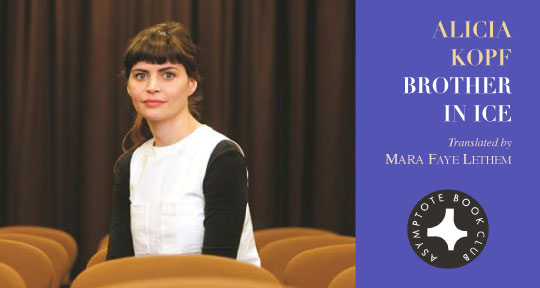Welcome back for a fresh week of literary news from around the globe, featuring the most exciting developments from Hungary, Norway, Spain and the Caribbean.
Diána Vonnák, Editor-at-Large, reporting from Hungary:
A major literary event, the 25th International Book Festival was held in Budapest between 19-22 April. The annual festival is not only a feast of newly published Hungarian literature with roundtable discussions, speeches, and meet-ups, but also a hub for translated literature. This year, Serbia was the guest country, with invited authors such as Milovan Danojlić, Laslo Blasković, Dragan Hamović, Igor Marojević, Radoslav Petković, Dragan Velikić, and Vladislava Vojnović. Authors discussed the place of Serbian literature in the broader European context, and their Hungarian translators talked about the translation process.
A highlight of the Festival was guest of honour Daniel Kehlmann’s discussion of his recent book Tyll, a chronicle of the Thirty Years War, featuring the archetypical German trickster Till Eulenspiegel. Kehlmann received the chief award of the Festival, the Budapest Prize, previously awarded to Jorge Semprún, Orhan Pamuk, Günter Grass, and Michel Houellebecq, among others.
The International Book Festival was not the only place where great news about translated literature could be shared these weeks. The Hungarian Books and Translations Office of the Petőfi Literary Museum announced the list of subventioned books for the first half of 2018. Asymptote contributor and Close Approximations winner Owen Good received support for Krisztina Tóth’s Pixel, soon to be published by Seagull Books. We can also look forward to Peter Sherwood’s translation of The Birds of Verhovina by Ádám Bodor, supported by the same agency.
András Forgách’s No Live Files Remain has just been published by Simon and Schuster in Paul Olchváry’s translation. The book narrates Forgách’s reckoning with his mother’s past as an informant of the Kádár regime. Facing family histories and friendships compromised by agent activities is a peculiar genre in Hungarian literature—and literary traditions of virtually every country that experienced intense state surveillance. No Live Files Remain is a crucial addition to this thread, a mother’s story that could serve as a counterpart of Péter Esterházy’s account of his father in Revised Edition.
READ MORE…









